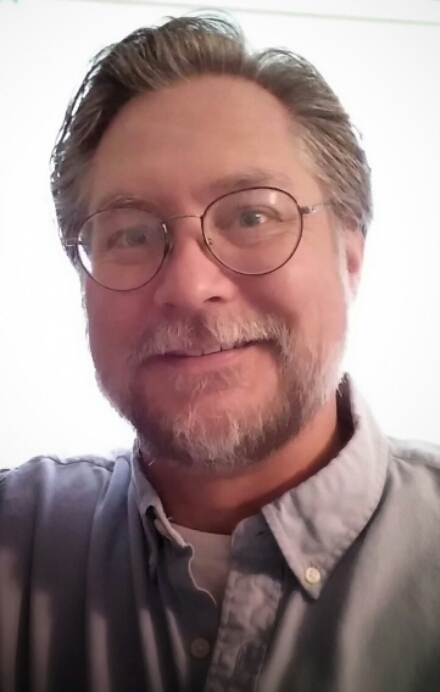
Neither of these coincidentally timed treatments are for the same cancer, which would have been too weird for believability anyway, and we probably won’t share identical side effects across the board or react too similarly to the drugs, but there is still a commonality of experience that cannot be denied. My friend from high school is one of those rare and thoughtful people who is cursed with the right balance of kindness and patience to really place herself in the center of care giving. It feels weird saying this, but I would not wish that upon anyone, as great a gift as it is. This goes back to my issue with patient guilt, perhaps; I feel lacking when I cannot help those suffering worse than me or I feel guilty about not suffering as much as them, and this extrapolates to me not wanting others to suffer as a result of my condition or being forced to take care of me. I doubt that my feelings about this are at all uncommon, even as I feel particularly fortunate about how well I have fared with my own treatment and how happy I have been about maintaining my generally good health and emotional well-being. And I should assume that my friend’s spouse is probably a much nicer and easier person than the fellow my wife has been putting up with.
My neighbor will be parked in a chair across town from me in spite of almost using the same infusion center. She found an oncologist she could relate to better at City of Hope, which is truly important when it comes to this sort of thing. And she gets the pleasure of a two-day treatment! I am torn between sympathy for all the time she is going to be connected to her drip (8 hours on the first day alone) and envy for all the time she is going to be connected to her drip. Of course if they give her something that makes her sleepy, that kind of undoes everything; I appreciate the experience because I am both a part of what is going on and also able to make genuinely productive use of the time. The night before the infusion, she was out in her back yard cheerfully putting out food and saying goodnight to her two cats. She is so vibrant and committed to her pursuits that it is genuinely baffling to think she is about to face down months of chemo. I have barely seen her slow down in the years we have lived with a shared fence, even with a hip replacement or other statistically probably malady for her supposedly advanced level of maturity. (I am skeptical that she is as old as she claims, which isn’t even really that old considering that we now have the gift of immortal cells to keep us perpetually young, at least in spots.)
Plus she’s an actress, so really, how much of what she tells me should I really believe. That boy she brings by to pose as my daughter’s friend might not even be her grandson, though he would have to be some sort of an acting prodigy to pull off his part so well, consistently, for so many years. So, okay, I’ll buy that part of her life as authentic. But this cancer thing, the conveniently change of venue… I think she is piggybacking on my thing here to study up on some new role. Or I would like that for her, though honestly, with her apparent gusto, it is hard not to see her throwing herself into this treatment in order to really get the most experience out of it. Taking into consideration that she is British, on the other hand, she might have a preprogrammed impulse to simply pretend nothing traumatic is happening and expect that tea will still be served promptly. At three. Or whenever the proper tea time is — I know she explained it to me once.
My high school friend asked me about how I deal with the situation on an emotional level. Her experience with her husband bears some similarity to my own, and I think we three cancer patients of this particular moment all may share some qualities of internalization. I don’t know whether either of the other two are likely to weep in their private moments or cry openly to their loved ones, though I doubt it.
A few days ago, while I was serving a cappuccino out of the lovely converted camper that houses a coffee service for my daughter’s school and for which I generally hold the position of chief barista, I became engaged in an interesting conversation on dealing with negativity in a positive manner. The other party suggested that ignoring the negative, or using the “fake it ’till you make it” tactic was a suitable way to get past the negative issues and getting on with life. I suggested that this was simply a way to internalize problems, which could effectively compound them and wear unduly on the individual. Many of us, including myself, have a tendency to follow this pattern. I learned it from my father, from which I saw occasionally disastrous results. In my personal experience, it never seems to end well, or at least not comfortably. Keeping negativity inside may seem valiant or noble as a means of protecting those around you, but in actual practice this tends to increase tension and reduce trust. Internalization does not help progress.
On the other hand, there is a way to deal with negativity that is more proactive while still not dwelling in the negativity as a defining element of life.
By acknowledging the negativities in our lives without letting them define us, we can discuss them in a positive light. That is, we can retain focus on a positive outcome by dealing with negativities from the position of moving beyond them, focusing on desired outcome. How are we working to solve the problem? What are we looking to achieve? Which tactic will offer the best outcome? Recognize the issues, recognize the roadblocks or bumps along the way, but keep the focus on the objective. Dwelling in the negative is a way to admit defeat, to claim powerlessness over the situation, to give up. Living in the positive allows the negative issues of the day to exist as a component of our lives, which they are, but components which can be dealt with — without controlling our lives.
My high school friend had asked me about my emotional and spiritual support and how I was doing on those levels. It got me thinking. These are topics I am generally happy to talk about. I suppose I had an edge on this because the road toward my actual diagnosis took a rather long time. It was several months between the X-Ray identification of the tumor and the biopsy that confirmed cancer, and each step of the way, even though there were voices saying “it could easily be something else,” there was also that inner voice telling me to just check up on the options in case it wasn’t something else. Before I was diagnosed, I had already accepted cancer as a very likely option and had already gotten angry and upset, but mostly and consistently at being dragged on without knowing. I hate the uncertainty, and I felt absolutely terrible at the time; it was difficult breathing and I was super tired and I had just come off a crappy summer of being sick, too. When I got the diagnosis, I was relieved, because at least I knew WHAT I was dealing with and could formulate a plan to attack it. Granted, I had some disappointments: it was stage 4 rather than the stage 2 I had expected, and I did not have any actionable mutations that could immediately be attacked with targeted gene therapies (those go to the other 50% of folks with my “garden variety” cancer), so I had to get the old conventional treatment. But I was enthusiastic to start.
So, I have completed my first six chemotherapy treatments. This particular cocktail is done being consumed and, in a couple of weeks, I will be getting a new scan to see how far the tumor in my lung has shrunk. There are no reliable markers to show the levels of cancer in my bones at this point, and scans cannot give a fully accurate assessment of that, but the tumor size will show overall effectiveness of the treatments and help us to determine the next step. My options are to remain on one of the chemo drugs or on Avastin, which will prevent the growth of new blood vessels and, therefore, keep the cancer more or less at status quo. If the tumor is still present, chances are that I am going to press for more chemo in order to push the cancer closer to total remission. However, those choices will not be made until there is a proper CT scan to analyze and some real options to weigh. In the near future, I also expect that immunotherapy will be an option, and that may well eradicate the cancer entirely if it happens to work with my body.
Either way, Round Six was a milestone and I am glad to be moving along toward a more maintenance oriented treatment.

3 thoughts on “The Chemo Diaries Round Six: Cycles End, Cycles Begin”